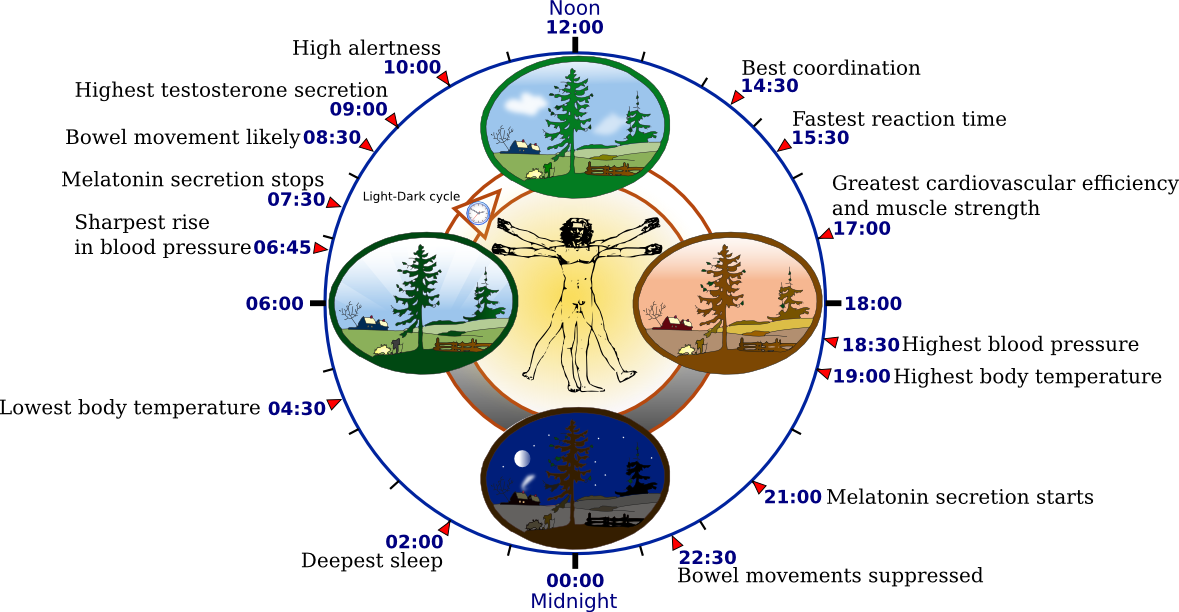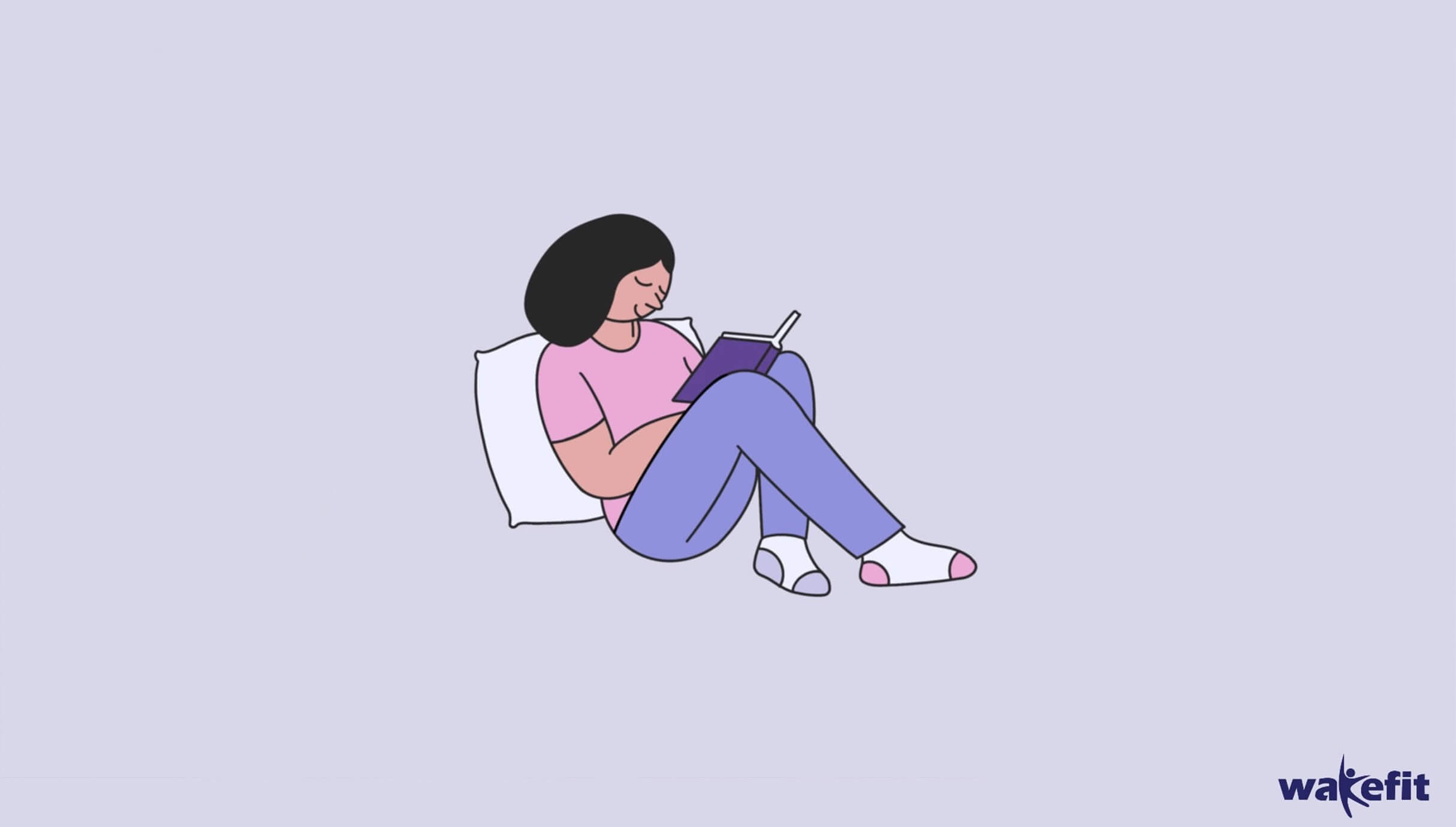Human beings and their body follow some natural behaviours. For instance, they sleep during the night, wake up in the morning, and work through the day, before falling asleep again. So, they follow something called the biological clock of human body. Let’s take a deeper look into it.
We follow, more or less, fixed meal times, and during these times, there is a feeling of hunger and craving for food. This is nothing but a mechanism that controls the body’s various physiological activities. It is known as the ‘circadian rhythm’ in medical terms, and ‘body clock cycle’ or ‘biological clock of human body’ in common parlance.
Moreover, it is from deep within the brain that this clock operates when the signal waves are sent and received. This guides the body to act a certain way throughout the day. The normal course of activity that takes place during the day usually happens by following this human biological clock or the body clock cycle.
But first, let’s take a closer look at the circadian rhythm.

What is Circadian Rhythm?
The circadian rhythms are the changes in human mental and physical behaviour that follow a 24-hour body clock cycle. Basically, it’s a natural internal process that helps manage the cycle of waking up and sleeping and repeating it again around every 24 hours. And the bodily behaviours change throughout the day according to this biological clock of human body. And when this cycle disrupts, it leads to the circadian rhythm sleep disorder.
How the Body Clock Cycle Works
When you ask what is circadian rhythm, there might be a lot of things crossing your mind. So, let’s give you a proper understanding of how the human biological clock works. There are certain signals that the body uses for understanding whether it is day or night. Factors like different activities and daylight help in ascertaining the difference between day and night. This whole thing is controlled by a part of the brain known as the suprachiasmatic nucleus (SCN), which is very tiny and located right above the optic nerves. Melatonin production is also controlled by the SCN.
Moreover, melatonin is a neurotransmitter that helps in regulating the sleep-wake cycle or the biological clock of human body. Since external factors like darkness and light play an important role in the body clock, SCN can be interrupted by many factors, including jet lag, working night shifts, blindness and so on. The result is sleeping problems and circadian rhythm sleep disorder.
Biological Clock of Human Body: Body Functions and Behaviours
As mentioned above, melatonin is responsible for maintaining the body’s daily cycle. At dusk, when the night sets in, it is the body’s tendency to feel sleepy and the urge to go to bed increases. Melatonin is secreted in a greater amount when it is dark, and this is a signal to the brain to switch to sleep mode. Again, with sunrise, melatonin secretion is inhibited and a signal is sent to the brain to wake up and resume daily activities. Other body functions like hunger, metabolism, immune system, etc., are also controlled by the biological clock of human body.
It has been seen that environmental disruptions also hamper the proper functioning of the body’s natural clock. Jet lag and shifting jobs are two of the most common reasons that hamper the bio clock in human body and cause disturbances to a good night’s sleep.
Hampered Biological Clock Effects on Overall Health
When the biological clock is hampered and disrupted, various kinds of physical as well as psychological disorders affect your body mainly manifesting the circadian rhythm disorder in your body.
1) Circadian rhythm sleep disorder:
This is probably the most common problem which is seen. In this sleep disorder, the afflicted person is not getting sleep properly at night. Hence, they are sleep-deprived and the effects of the same continue throughout the next day. The circadian rhythm disorder includes feelings of fatigue, sleepiness, lack of focus, lack of alertness, and other similar symptoms.
2) Risks of diabetes and cardiovascular diseases increase
When the biological clock of human body is hampered and you have an irregular sleep schedule, it takes a toll on your cardiovascular health. Chances of developing diabetes and high cholesterol levels are common with the body clock going out of whack.
3) Immunity is hampered
When the circadian rhythm in the body is disturbed, it affects the immune system of afflicted individuals greatly. Hormones controlling the immune function fail to function properly, and hence, various kinds of problems manifest.
4) Negative effects on mood
Mood swings, bad moods, irritability, etc., are common symptoms when the bio clock in human body is disturbed. This happens as the hormones in the body experience an upheaval.
Therefore, it is highly recommended to follow a definite pattern in your lifestyle. This is important as the biological clock of human body is built to follow that pattern and the body adjust accordingly.




1 Comment
The 10 Surprising Benefits Of Sleeping Naked! - Wakefit
June 12, 2018 at 6:46 am[…] fight off viruses, bacteria, germs, and other disease-causing organisms. If you want a more robust immune system, sleeping in the nude is the way to […]